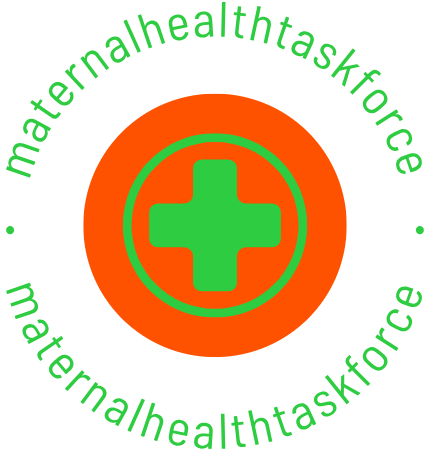The postpartum period, often referred to as the “fourth trimester,” is a crucial time for new mothers to focus on recovery and healing. After the excitement of childbirth, the body undergoes significant changes, and taking care of yourself becomes just as important as caring for your newborn. In this post, we’ll cover essential items and practices for a smooth and healthy postpartum recovery.

Prioritizing Rest and Sleep
The demands of caring for a newborn can make rest seem impossible, but sleep and rest are key to postpartum recovery. Your body needs time to heal from childbirth, whether you delivered vaginally or via C-section. Prioritizing sleep whenever possible, such as during your baby’s naps, helps the body regain strength. If you have help from family or friends, use that support to give yourself the rest you need.
Consider setting up a cozy sleep space near the baby’s crib so that night feeds and diaper changes are more convenient. Use pillows or cushions for extra support and to aid in comfortable breastfeeding positions.
Hydration and Nutrition
Proper hydration and balanced nutrition are critical postpartum recovery essentials. Childbirth, breastfeeding, and even managing newborn care can deplete your body of essential nutrients and fluids. Drinking plenty of water helps support breast milk production and keeps energy levels up. Having a water bottle nearby at all times makes it easier to remember to stay hydrated.
Additionally, eating nutrient-dense foods such as fruits, vegetables, lean proteins, and whole grains helps your body recover faster. Snacks that are easy to prepare and consume with one hand, like nuts, yoghurt, or pre-cut veggies, are ideal when time is limited.
Postpartum Clothing and Gear
Comfortable, practical clothing and gear can make a world of difference during your recovery. Here are a few essentials:
- Loose, breathable clothing: Opt for soft, loose-fitting clothes that allow you to move freely and don’t irritate sensitive skin. Maternity leggings or nursing tops provide comfort and functionality.
- Postpartum pads or underwear: Postpartum bleeding (lochia) is normal for several weeks after delivery, so investing in high-quality, absorbent pads or disposable underwear is essential for comfort and hygiene.
- Nursing bras: If you’re breastfeeding, comfortable, supportive nursing bras with easy access make feeding sessions much easier. Look for bras that provide good support without an underwire, as your breasts may feel sore or engorged during the early weeks.
- C-section recovery essentials: If you had a C-section, items like belly binders, which support your abdominal muscles, and soft, high-waisted clothing that avoids rubbing against the incision area can help with recovery.
Pain Relief and Healing Aids
Recovering from childbirth can come with discomfort, whether it’s perineal soreness after a vaginal birth or incision pain after a C-section. Here are a few ways to manage that discomfort:
- Ice packs: For perineal pain, applying cold packs can reduce swelling and provide relief. You can use specialized postpartum ice packs or create DIY versions with frozen pads.
- Sitz baths: A sitz bath involves soaking the perineal area in warm water, which can soothe pain, reduce swelling, and promote healing. You can use a small basin that fits over your toilet or opt for a regular bath.
- Pain relievers: Over-the-counter medications like ibuprofen, prescribed by your doctor, can help manage pain and inflammation. Always follow your healthcare provider’s advice on what’s safe to take.
- C-section scar care: Keeping your incision clean and dry is key to preventing infection. Follow your doctor’s instructions on wound care and consider scar-reducing creams or silicone sheets after healing to minimize the appearance of the scar.
Emotional Support and Mental Health
The postpartum period isn’t just about physical recovery; emotional and mental well-being are equally important. The hormonal shifts, lack of sleep, and new responsibilities can leave many new mothers feeling overwhelmed or even experiencing “baby blues.” These mood swings usually resolve within a couple of weeks, but if they persist, it could be a sign of postpartum depression (PPD).
It’s essential to check in with yourself emotionally and seek support if needed. Whether it’s talking to a partner, joining a new mom support group, or seeking professional help, never hesitate to reach out. Postpartum depression is common and treatable with the right care.
Breastfeeding and Lactation Support
For mothers who choose to breastfeed, the first few weeks can be challenging. Sore nipples, latch difficulties, or concerns about milk supply are common struggles. Having lactation support can ease the process.
- Nipple cream: A lanolin-based nipple cream can soothe sore, cracked nipples.
- Breast pads: To manage leaking, disposable or reusable breast pads keep your clothing dry.
- Breast pump: Whether for relief from engorgement or building a stash of milk, a good-quality breast pump is an invaluable tool.
Consulting a lactation consultant early on can help address any breastfeeding concerns, ensuring both you and your baby are on the right track.
Conclusion
The postpartum period is a time for healing and adjustment. Equipping yourself with the right recovery essentials—from comfortable clothing to emotional support—can make this transition smoother. Remember to prioritize rest, hydration, and mental health as you navigate your new role as a mother.










